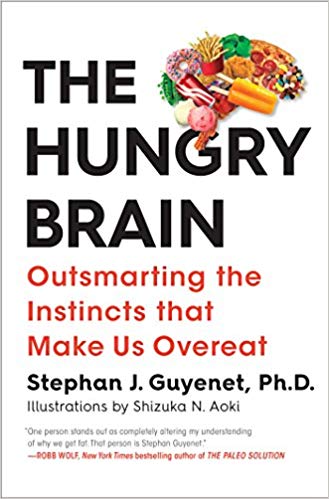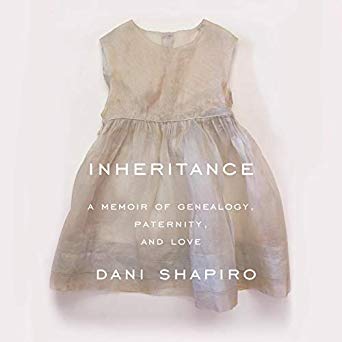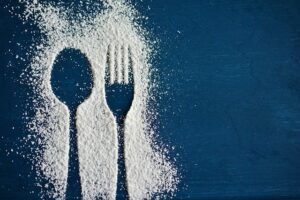
The Hungry Brain: Outsmarting the Instincts that Make Us Overeat by Stephan Guyenet, Ph.D., originally published in 2017, now available in several formats. I accessed the book via Audible.com.
This is a book that mixes immensely practical, down-to-earth information and advice about our current diet and health issues with somewhat-technical information about the actual biology of the brain. I found some of the biological sections to be rather frustrating, as Guyenet seems to subscribe to the idea that all of our thoughts, desires, motivations, decisions and choices can be boiled down to biochemical reactions at the cellular level. So in an early chapter he goes into an explanation about how our “lizard” brain (or, in this book, our “lamprey” brain) functions, with “feedback loops” putting in “bids.” Guyenet is careful to say that whole process is how scientists understand this all might work, as there’s no way
 On to the next fad diet floating around out there! Remember, you don’t need me yammering at you in order to be able to evaluate these ideas. There are very, very simple things to look for:
On to the next fad diet floating around out there! Remember, you don’t need me yammering at you in order to be able to evaluate these ideas. There are very, very simple things to look for:
 All calories count, but they don’t all count the same, I said in my last post. So I ended with the horrible prospect of how many grams of sugar are in a 32-ounce Big Gulp regular soda. (At some point I’ll take on the diet soda industry, but not today.) 72 grams of sugar all dumped into the bloodstream at once constitute an EMERGENCY. Remember, these liquid sugar calories basically pass right through the stomach and into your small intestine where they’re absorbed. Alarm bells are going off and your pancreas is pumping out insulin at a mile-a-minute clip. And the system is proactive as well as reactive; your digestive system doesn’t wait for nutrients to hit it before swinging into action.
All calories count, but they don’t all count the same, I said in my last post. So I ended with the horrible prospect of how many grams of sugar are in a 32-ounce Big Gulp regular soda. (At some point I’ll take on the diet soda industry, but not today.) 72 grams of sugar all dumped into the bloodstream at once constitute an EMERGENCY. Remember, these liquid sugar calories basically pass right through the stomach and into your small intestine where they’re absorbed. Alarm bells are going off and your pancreas is pumping out insulin at a mile-a-minute clip. And the system is proactive as well as reactive; your digestive system doesn’t wait for nutrients to hit it before swinging into action. I read this book way back in 2014, having seen it on the new-book shelves at our local library. It had a catchy cover, and I was just getting awakened (awoke?) to how high my sugar consumption was and how I needed to cut down. So I thought the book might help me with my own struggles. But I have to say that I didn’t enjoy it much. I remember skimming parts and thinking that the book was losing steam as it went on.
I read this book way back in 2014, having seen it on the new-book shelves at our local library. It had a catchy cover, and I was just getting awakened (awoke?) to how high my sugar consumption was and how I needed to cut down. So I thought the book might help me with my own struggles. But I have to say that I didn’t enjoy it much. I remember skimming parts and thinking that the book was losing steam as it went on.  Ah, the wonderful world of so-called “healthy” or “alternative” sweeteners! A food blog that I follow faithfully,
Ah, the wonderful world of so-called “healthy” or “alternative” sweeteners! A food blog that I follow faithfully, 
 This is the final post for now about the problems with following the so-called “ketogenic” diet. Today I’m addressing some issues I’ve discovered with one of the leading keto gurus, Eric Berg DC. Note that I don’t call him “Dr.” Berg, even though that’s what his YouTube channel, his books, his website and his ads call him. HE IS NOT A MEDICAL DOCTOR. HE’S A CHIROPRACTOR. Sorry. I try to steer clear of all-caps ranting, but sometimes it’s just necessary.
This is the final post for now about the problems with following the so-called “ketogenic” diet. Today I’m addressing some issues I’ve discovered with one of the leading keto gurus, Eric Berg DC. Note that I don’t call him “Dr.” Berg, even though that’s what his YouTube channel, his books, his website and his ads call him. HE IS NOT A MEDICAL DOCTOR. HE’S A CHIROPRACTOR. Sorry. I try to steer clear of all-caps ranting, but sometimes it’s just necessary. A reminder if you’re just coming across this series of posts: I am taking some material from the website
A reminder if you’re just coming across this series of posts: I am taking some material from the website